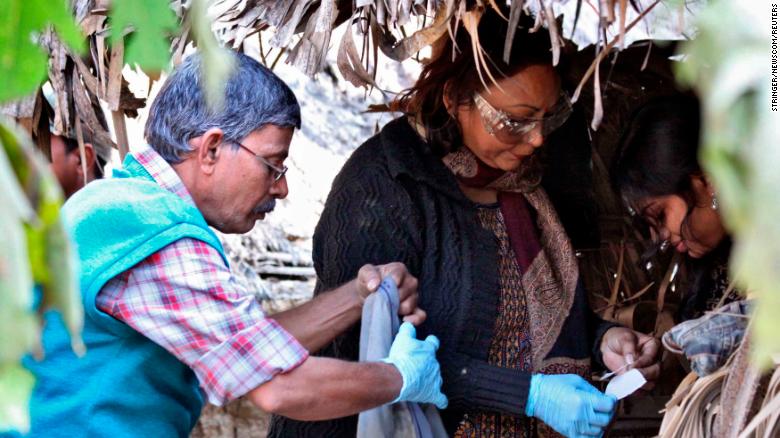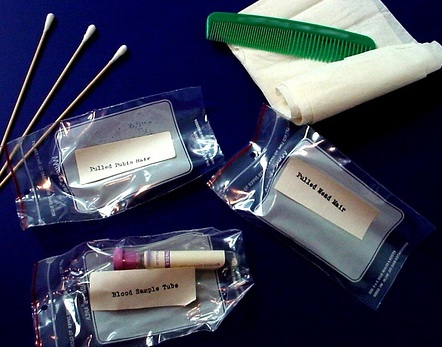Lack of forensic facilities: Sexual violence victims struggle for justice!
 Image credits: CNN
Image credits: CNN
“Her blood kept on flowing,” a grief-stricken rani told CNN. She was talking about her 7-year old daughter who was brutally gang-raped. According to the national crime records, Rani’s daughter was only one among the 16,863 rape victims under the age of 18 in 2016. The 7-year-old had to undergo surgeries for the injuries in her genitalia. Rape is one of the most common crimes against the women in India; Not only women but also kids are not safe these days. While reading this have you thought why did CNN mention the 7-year old’s case specifically? Well, there is a reason. Now even after 2 years, the forensic report on the medical evidence which has been taken at the night of the crime still hasn’t arrived. This is not the first case where the forensic reports are getting delayed. What in the name should we call such carelessness? Legal dereliction?
The struggle of victims
In India, more than 38,947 cases of rape have been reported in 2016. The unreported cases will be twice this number. According to a report from the ‘Hindustan Times, among these cases,12,000 DNA samples from rape cases are still waiting to be tested in national forensic science labs. 12000 samples?! What does this number refer to? A part of the criminal justice system which still remains untouched by the legal reforms. This adversely affects the victims. They have to struggle hard to find justice. Sexual violence never seems to end in our country. While such cases persist to appear boundlessly, India’s forensic labs simply do not have the capacity to handle all the cases. In total, there are 31 forensic labs in India, one in each state. But among these labs, only 16 have the capacity for DNA analysis. Six National level labs, of which three forensic science labs have the capacity to do DNA analysis on which a rape prosecution can be conducted. Rakesh Srivastava, the secretary of India’s Ministry of Women and Child Development says that the central lab for the forensic science in Chandigarh can only handle 153 cases. Any cases that need forensic evidence usually get sent to these labs. According to the court documents, the forensic science labs in Delhi alone have 1,765 samples pending in the biology division as of September 2017. Experts say India’s government has not made forensic evidence a priority, particularly DNA. “India is a unique country in that they have one of the more notable sexual assault problems but has done very little about it,” said Tim Schellberg, founder of Gordon Thomas Honeywell, which consults with governments across the world on forensic evidence. “Forensic DNA is the best tool that anyone or any country or any police department could ever use, but the government still haven’t embraced it. The labs do what they can.” He adds. Well, Indian legal system can bow its head with shame.
The victims always wait long for the justice. Twenty-one months have passed since Rani and her daughter met the doctor. When her daughter came back that night bleeding, Rani tried to stop the flow of her daughter’s blood with her own clothes. Hence both of their clothes were covered in blood. These items, which were submitted to the forensics lab, are now evidence. But two years have passed they don’t even know whether the sample is tested. Collecting forensic evidence is crucial in such cases. But this always gets delayed resulting in a delay in justice for the victims. Forensic experts say, India lacks trained workers who can handle the evidence properly, which is particularly vital in preventing false convictions. “We reach out to the police station whenever such [sexual assault] cases happen. Sometimes, [DNA] samples are taken, but they don’t know how to manage it. Sometimes, the sample gets put into coconut oil cans, sealed and sent to the lab”, says Ravi Kant, a lawyer and founder of Shakti Vahini, a nongovernmental organization working with victims of sex trafficking across India. In 2014, the Ministry of Health issued national guidelines to health care providers on how to provide therapeutic care and take biological samples for forensic evidence from a victim without putting him or her through further trauma, but as always, only a few states have started implementing the new guidelines.
The need for improvement

No standard rape kits are available in India to collect the samples for the test. In western countries like the United States and the United Kingdom, doctors use a standard rape kit, which includes items like tubes to collect blood and urine samples, glass slides and wooden sticks for fingernail samples. But in India many doctors still use unscientific tests like the two-finger test, in which an examiner determines whether a woman has been raped based on how loose her vagina is, said Sangeeta Rege, the coordinator at the Mumbai-based Centre for Enquiry Into Health and Allied Themes, a research-based advocacy organization that works on health and gender issues. Also, Harish Pathak, the head of forensics at Mumbai’s King Edward Memorial Hospital says that “The doctors who look for evidence like vaginal swabs or stray hairs or blood on the victim’s body don’t always collect, for example in cases in which a victim has come in several days after a rape — and samples are no longer viable — or has taken a shower and washed any remaining evidence off.”
The potential and resources of labs also vary. Lawyer Ravi Kant says that he has waited over two years for a forensic report in U.P, whereas in Delhi, he can get a result in six months. N.Madhusudan Reddy, staff scientist and group leader at the Centre for DNA Fingerprinting and Diagnostics in Hyderabad says “India is doing less than 5% of the DNA profiles that can be done”. So the potential is there. Then what is lacking? According to his opinion, with adequate funding and training of the personnel, one could actually tackle the issue. Even in middle-income countries like South Africa, they have overcome this challenge of handling caseloads. They’ve tackled their problem by developing an incredibly massive laboratory to deal with rape kits, and by training everybody on how to collect the samples from rape victims. But compared to that, India does not even have a legal framework in place on how, where and when to use DNA. Nor does it have a DNA registry of offenders, which can help in cutting down repeat offenders. There were several initiatives to introduce versions of the bill for DNA testing on a nationwide scale since 2000’s. None of such bills passed. Also, In 2017, the Law Commission of India prepared a new draft bill to regulate how DNA is to be used based on a draft submitted by the Department of Biotechnology in the Ministry of Science and Technology in 2016. But, even in this scenario where the rape cases are increasing, some states are yet to implement the latest guidelines.
The Ministry of Home Affairs announced in late May that forensics laboratories would be improved. The Ministry of Women and Child Development said five more advanced labs will be opened in the next three months and said it will provide police and hospitals with standardized rape kits. Let us hope that all these plans would be implemented soon and victims of sexual violence get justice without delay!
Source: 1. https://edition.cnn.com/2018/06/06/health/india-forensics-delays-justice-intl/index.html
2. https://mohfw.gov.in/sites/default/files/953522324.pdf